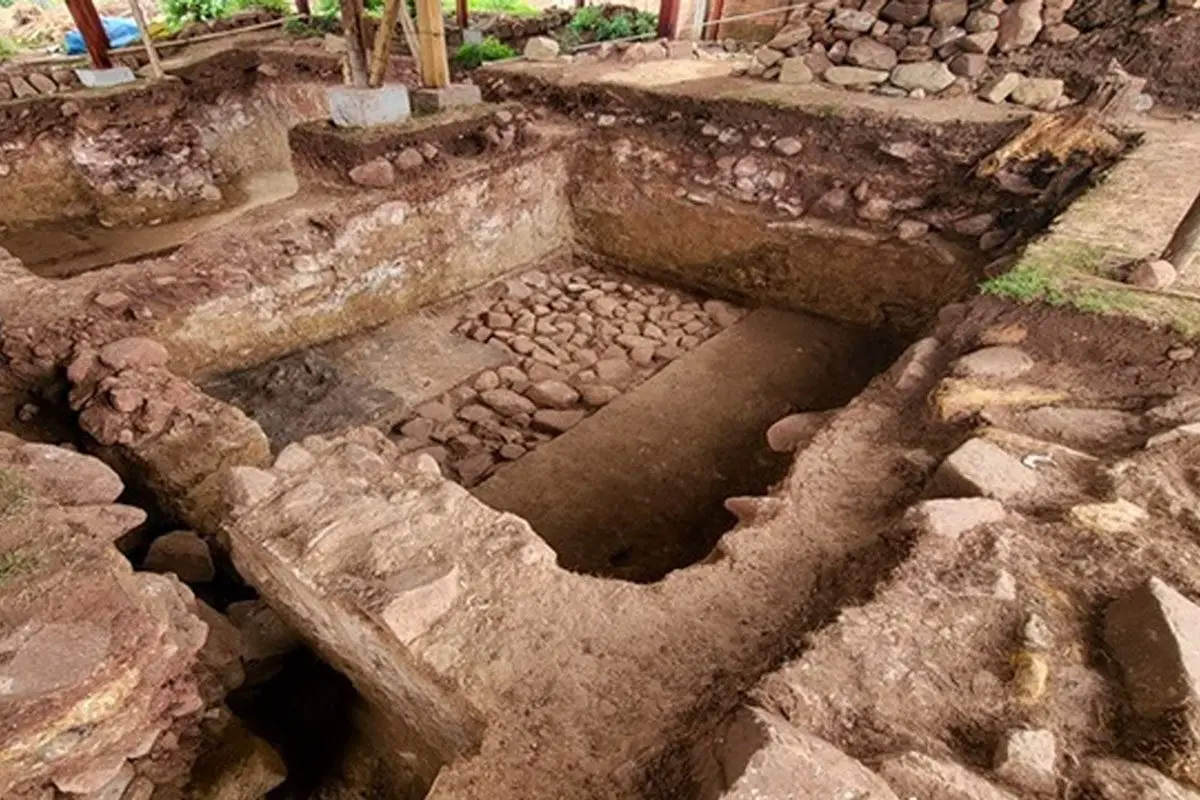The Peruvian State have announced the discovery of an early temple phase at the Temple of Rurupa, a ceremonial complex located in the Anco Huallo district of Peru.
Excavations have revealed that the temple was constructed in two phases, with the first corresponding to the Middle Formative period (1000 – 800 BC).
This early phase consists of a rectangular platform and three structures with rectangular floors, as well as an anteroom which is then divided into two independent structures.
Within one of the structures is a rectangular altar and the ceremonial offering of a sacrificial guinea pig.
The structures are plastered in white and painted in various colours of brown and red pigment. According to the archaeologists conducting excavations at the site, this type of architecture is mostly found in coastal regions, providing evidence that the temple builders travelled to the mountainous region of Anco Huallo-Uripa on a pilgrimage to conduct rituals.
The second phase corresponds to the Late Formative (800 BC – 400 BC), by which time, many of the first phase structures were buried with earth and stone filling as the temple complex was widened.
Excavations reveal that the construction technology changes from small stone blocks to much larger stone and architectural features. The second phase also indicates that the builders constructed a sunken plaza connected by stairs.
According to the researchers: “These changes represent the arrival of a new ideology; The ceramic is still not clear and is in the process of analysis.”
Image Credit : Peruvian State
Sources : Peruvian State – Apurímac: White plastered enclosure discovered in the Ceremonial Temple of Rurupa





